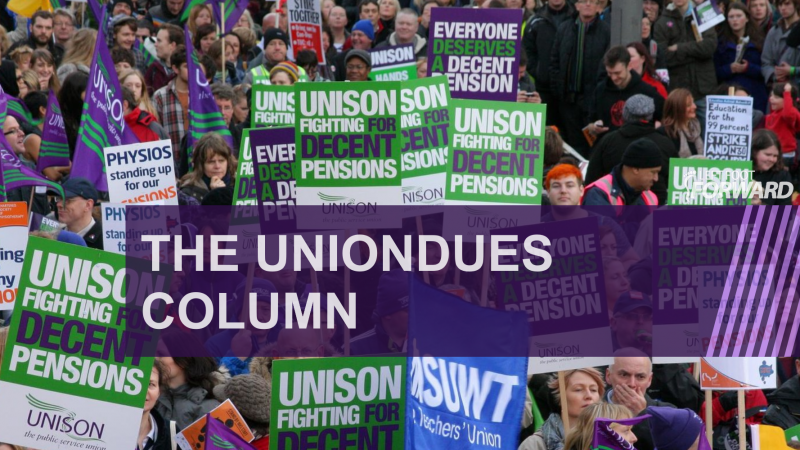Health and safety at work is a fundamental right - and we need to fight for it across borders, writes Simon Sapper.

Simon Sapper is a trade unionist and host of the UnionDues podcast.
In the latest UnionDues podcast, International Trade Union Confederation Deputy General Secretary Owen Tudor gives us a tour of the global trade union movement – via Canada, the US, Fiji, Nigeria, India and Turkey – and discusses the ITUC’s key campaign priority of reducing deaths at work
It is a sobering landscape. There are five workplace deaths per minute each and every day, a “ghastly, tragic figure” made worse by the fact that “every one of these workplace deaths is preventable,” Owen says.
The ITUC’s savelives@work campaign seeks to make better health and safety one of the International Labour Organisation’s “fundamental rights” meaning that it will automatically become incorporated in all agreements that are based on ILO principles.
Owen says this will provide “an impetus to do more about prevention”. The ILO took an in-principle decision to move in this direction in 2019, and since then the importance of health and safety has been emphasised by Covid. The ILO needs to confirm its decision this year and not next, he tells the podcast.
Commemorations for the forthcoming International Workers Memorial Day on 28 April are an important part of the campaign, and studies from North America show how unionised workplaces offer better health and safety for customers and clients, as well las the workforce.
Global trade unionism is a complicated and crowded space. As well as outlining the main players, Owen described how “distance in time is often more important than geography in explaining differences”. But the reality is that “people at work have the same problems wherever they are.”
Trade unionists have to be wary of endless co-ordinating meetings stifling any practical action. And increasingly, they are recognising that some business practices and issues can only be met by a global response.
In support of this Owen focusses on supply chains. Only unions working globally are able to track supply chains, and make sure that employers at every level are reminded of their responsibilities to workers’ rights. (You can find out more about this here)
That leads us neatly to Professor Mel Simms’s #thought4the week, which looks at how the government’s budget last week was a missed opportunity when it comes to the greening of work and workplaces – and she sets out why that is so important to unions.
And we have LFF’s own Josiah Mortimer with the weekly #RadicalRoundUp, with a shout out to health unions protesting the government’s derisory 1% pay offer from government. No wonder Unison is organising a national ‘slow handclap’ to show disapproval.
This episode is the last of the series, but we shall return. Meanwhile, look out for some special episodes of your favourite union podcast between now and the next regular series. Make sure to subscribe to catch them.
My thanks to all our guests this series and regular, excellent contributors, Mel and Josiah. Most of all thanks to everyone who has downloaded, streamed, shared, rated, emailed, liked and tweeted.
While we’re taking a break, you can still email us – uniondues@makes-you-think.com – tweet us @DuesUnion, and access this and all episodes here.
To reach hundreds of thousands of new readers we need to grow our donor base substantially.
That's why in 2024, we are seeking to generate 150 additional regular donors to support Left Foot Forward's work.
We still need another 117 people to donate to hit the target. You can help. Donate today.



